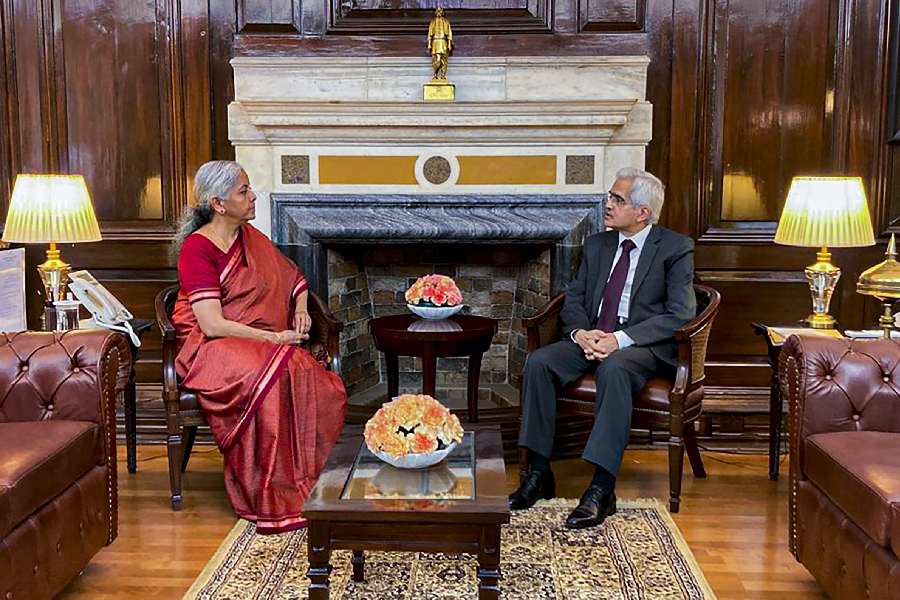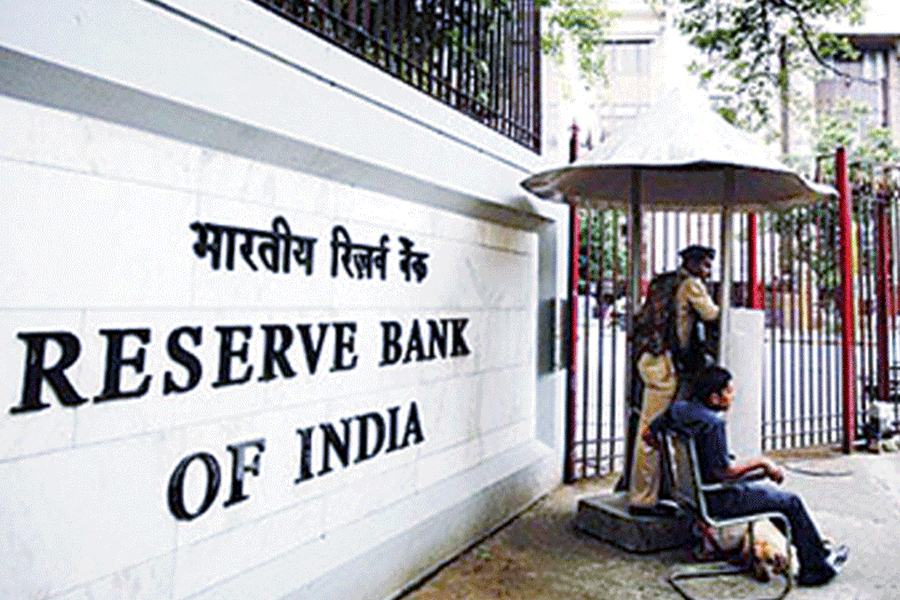Reserve Bank of India governor Shaktikanta Das on Tuesday called on Union finance minister Nirmala Sitharaman in the capital as the exercise to withdraw Rs 2000 notes from the system rolled out across the country.
While the details of the meeting are under wraps, bankers do not rule out the possibility of note withdrawal figuring in the discussion.
Bankers here said they did not see any rush to exchange notes at their branches.
Unlike November 2016, when old 500 and 1000 rupee notes — constituting some 86 per cent of the currency in circulation — were banned overnight, resulting in serpantine ques outside branches across the country, this time no crowding is being witnessed.
An official from a PSU bank at a branch near Mumbai who did not wish to be identified said amid thin footfalls there were more queries on how to exchange the notes.
``Many of the people are now enquiring at different branches to see how it is done. Over the next few years we may see them turning up at banks where there is not much hassle in terms of filling up a form or submitting an ID proof,’’ a banker said.
An SBI study on Tuesday said the withdrawal of Rs 2000 currency note is likely to be a non-event but it will have a favourable bearing on liquidity, bank deposits and interest rates.
"Decoding exchange/deposit dynamics, we understand, banks will already be holding some of these notes in their currency chests, thus the impact on deposits will be limited," SBI Ecowrap said.
Ecowrap further said in digital payments, India has been witnessing new milestones, in both value and volume terms, which indicate the robustness of its payment ecosystem and acceptance by a wide stratum of consumers.
High denomination notes have been scrapped twice in the past – once in 1946 and again in 1978. On both occasions, whenever the government of the day scrapped all the notes in a particular series, it had approached parliament for approval which were granted through separate enactments of parliament.
The Modi government had, however, opted to exercise “an unguided, uncanalised and arbitrary power” through a wrongful reading of the sub-section 2 of Section 26 of the RBI Act, Congress leader P. Chidambaram had argued before a Supreme Court during a hearing of a petition challenging demonetization.












